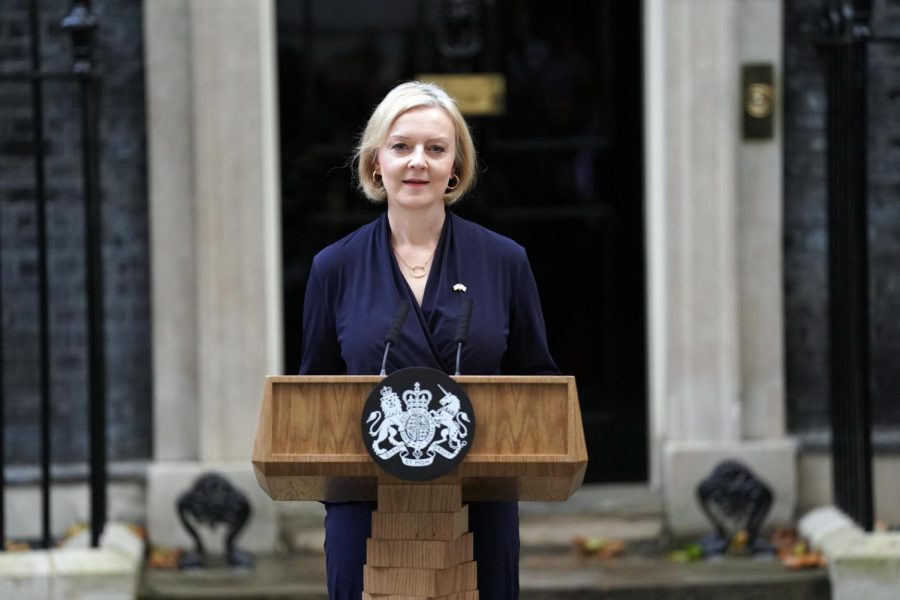Liz Truss resigns as British prime minister
Liz Truss, the former British prime minister, resigned on Oct. 20 after only six weeks in office. This made her the shortest-serving prime minister in British history. On Oct. 25, she was replaced by Rishi Sunak.
One significant cause of her downfall was her failed tax plan, leading to turmoil in financial markets.
“While I am hearing a lot of facile summations of her mere six-week tenure as an abject failure, I think in most conventional ways it was simply too brief to evaluate,” James Kowalski, MUN adviser, said. “It seemed apparent that she was enthusiastic and well-intentioned about stimulating growth in the British economy through tax cuts; that said, her desire to take sweeping measures was evidently misguided in terms of fiscal responsibility given the state of bond markets, inflation rates, and what the British government can afford right now.”
Truss prevented former British prime minister Boris Johnson from raising corporate taxes. Through her plan called the “self-mutilating mini-budget,” Truss additionally reduced business taxes.
According to economist William Gale, the director of the Urban-Brookings Tax Policy Center, raising government spending by cutting taxes can make inflation worse. Without taxes, people can buy more, leading to increased demand that can raise gas, oil, and food prices. In response to the situation, the Bank of England had to take emergency measures.
“I think Truss was the prime minister for far too short a time to have any lasting effects on the British economy,” Mingunn Kim (12), activer follower of global news, said. “If anything, however, I think that her short and failed tenure will only breed further mistrust of the British government and the British conservative party, which most likely will lead to the UK having a trend of more unstable governments. Unless the next prime minister, Rishi Sunak, is very competent at economic management, I don’t see the UK having a particularly prosperous time in the near future.”
Critics of Truss have argued that Truss’s poor political practices further contributed to her downfall. For example, she only appointed supporters of her campaign, strictly limiting her cabinet without accepting diverse talents of other politicians. Shortly after taking office, Truss had to fire her chancellor and home secretary.
Meanwhile, others criticized Truss for offering tax policies tailored to the needs of her conservative party members instead of considering the country’s concerns as a whole.
Aware of the dire economic crisis, Sunak announced to prioritize establishing economic stability. In response to Sunak’s election, there have been controversies fueled by colliding opinions between conservatives and opposing parties.
“Prime minister Sunak is an experienced financier,” Joonsung Kim (11), an active reader in global economy, said. “He was in finance before entering politics, and was the chancellor of the exchequer for many years as a part of the conservative party cabinet. Even in his first speech as prime minister, he said that certain mistakes were made by Truss and that he would correct those mistakes. So I have some confidence that Sunak will capably handle the situation.”

Jack is a senior reporter in Tiger Times. He loves to listen to lo-fi music, but his tastes for music frequently change. During his off-time, he likes...

